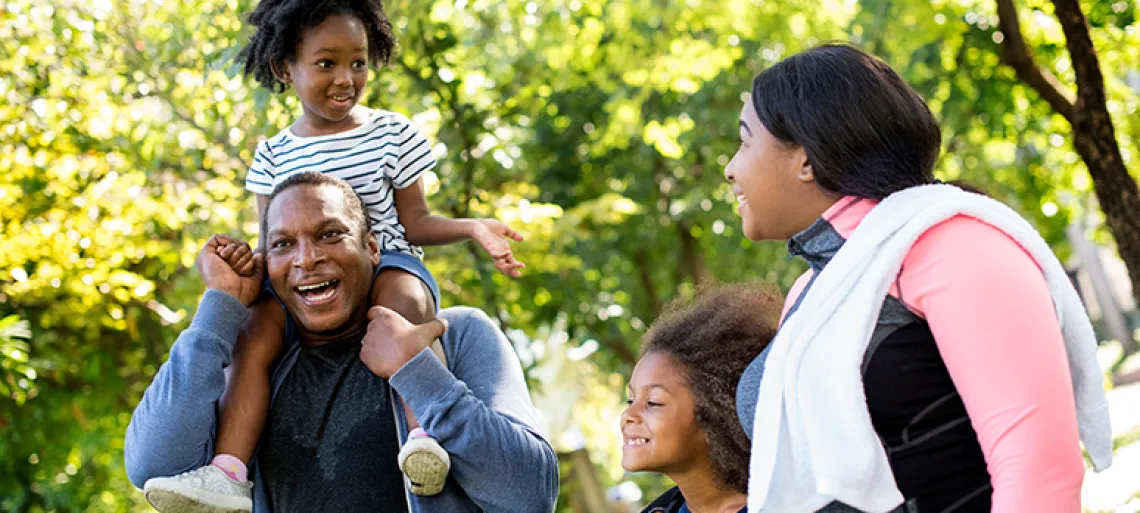
Parenthood is a long-term journey full of marvelous experiences and constant wondering of how my family is doing. It is an endless learning experience full of trial-and-error moments that allow every family member to grow and become a better person.
Throughout generations, parents have faced different challenges related to society’s changes. We have moved from extended family structures to nuclear families, from patriarchal to single-parent households, and from “mom, dad, and children” families to same-sex partnerships or multigenerational households.
No matter the type of family you have, the number of family members, or how experienced or not you consider yourself, professionals recommend these basic strategies that support healthy dynamics in all families:
- Regular routines—predictable day-to-day schedules like family mealtimes and traditions like birthdays and holidays. Spending time together improves relationships and strengthens the bonding among family members.
- Self-care—Carving time in our busy schedules to recharge is not selfish but necessary. When we are functioning in “survival mode.” we cannot give the best of ourselves.
- Realistic expectations—Social media has created an unrealistic and false sense of how families should be, and many parents feel the urge to be perfect. Families do not need to be perfect. They must be a safe space where all members can learn from their mistakes while feeling loved and supported.
- Open communication—Practice good listening and respectful conversations. Promote an environment in which everyone feels comfortable sharing their thoughts and opinions. The goal is not for everyone to think alike or to prove others wrong. The goal is to feel welcome to discuss all topics, even the toughest ones.
- Shared values and convictions—Our beliefs shape how we approach life and how families face crises, major changes, or everyday events. Parents’ modeling values and convictions influence how family members develop a positive or negative attitude towards living, learning, and mentally and emotionally growing.
- Stay connected with extended family and the community. Knowing that you have people who care for you not only provides a sense of belonging but also helps you feel safe.
Building healthy dynamics and maintaining a strong family is a serious business. However, one last strategy I would like to share is embracing laughter and good humor. Do not be too harsh with yourself. “Hold on tight,” and enjoy the ride. Remember, today’s big problems may become the funniest stories your family will share in the future.

